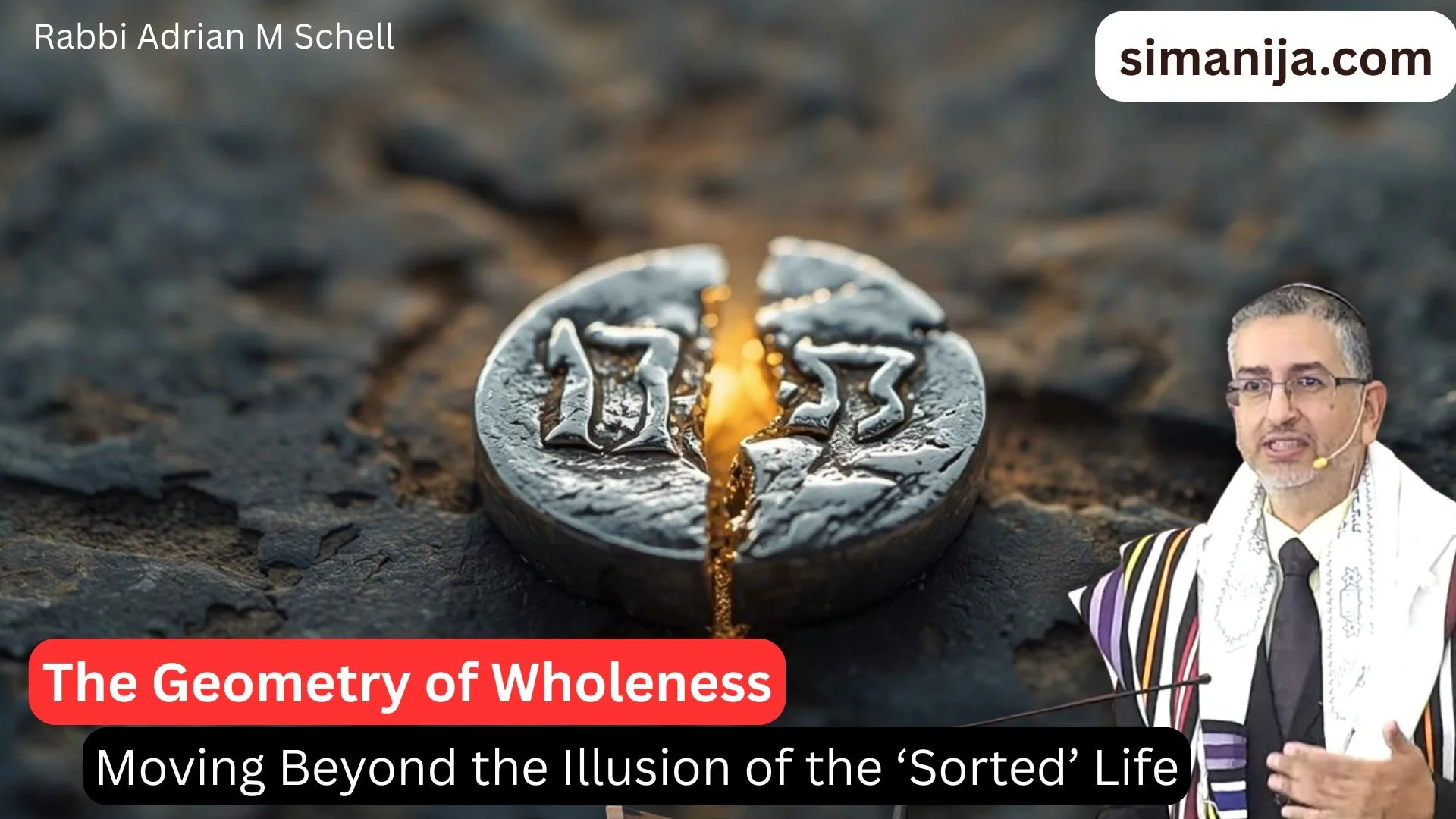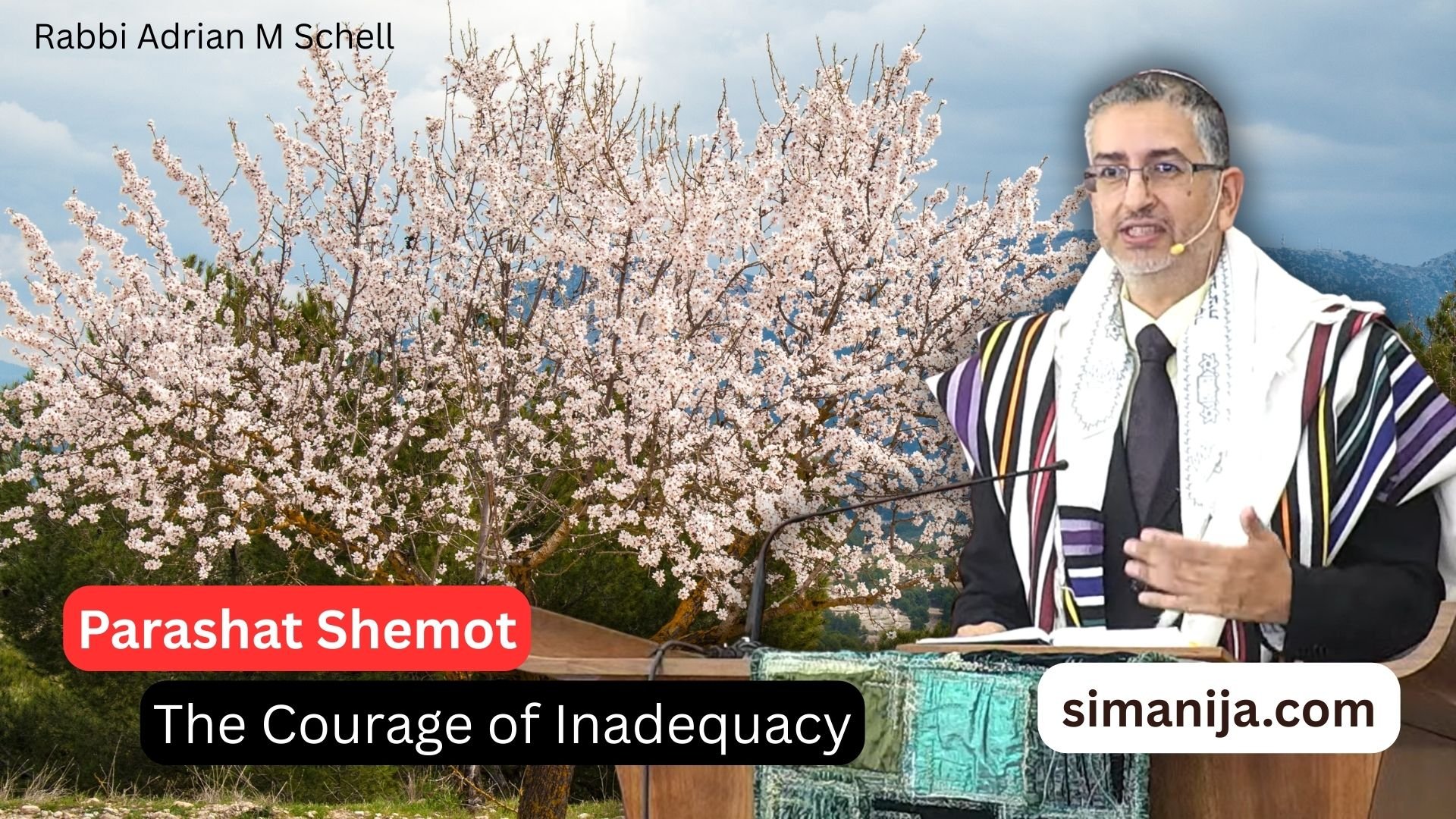
The Geometry of Wholeness
In a world that prizes the "finished" individual, the Torah offers a provocative alternative: the half-shekel. By requiring a contribution that is intentionally incomplete, the mitzvah suggests that we cannot arrive before the Divine entirely on our own. Rabbi Adrian explores how our modern obsession with self-reliance can lead to isolation, and why the "grammar of connection" found in our civil laws is the true key to a holy society. To be a community of half-shekels is to admit that our gifts are only complete when they are shared.

Memory as a Sacred Obligation
The silence left behind by the stopped hostage clock is not the joyous quiet of a struggle won, but the heavy stillness of a cycle closed. In Parashat Beshallach, we read that Moses took the bones of Joseph with him out of Egypt. Even in a life or death escape, the leader of our people stopped to ensure no one was left behind. We do not leave our dead in the narrow places. This Shabbat, we hold space for the silence, honouring the persistence of a people who insist on the dignity of every soul and the sanctity of every name.

The Courage of Inadequacy
We often imagine the great biblical leaders as individuals of unshakeable confidence. We tend to picture the cinematic version of Moses, standing fearless before Pharaoh, or the booming voice of a prophet thundering against corruption. Yet, when we look closely at the texts appointed for this Shabbat, we find something far more human, fragile, and reassuring.

At the End: Finding God After the Chaos

Our Civic Covenant: Faith and Democracy
In a time of deep societal division and rising anxiety, Rabbi Adrian Schell delivers a powerful address for Civic Shabbat, "A Covenant of Courage."Drawing on the ancient call to Abraham in Parashat Lech Lecha and the prophet Micah's vision of peace, Rabbi Schell explores the urgent challenge of our time: the breaking of our "civic covenant". He confronts the corrosive effects of populist language and the resurgence of antisemitism, arguing that these are not just political issues, but a profound moral crisis that threatens the soul of democracy itself.This sermon is a call to reject the politics of grievance and instead answer the timeless call to "go forth, not to conquer, but to kindle". It is a powerful reminder that in the face of fear, our greatest strength lies in our shared commitment to decency, justice, and one another.

The Lonely God and the Creation of Relationship

Take Words With You: A Jewish Guide to a Hopeful New Year
Between Rosh Hashanah and Yom Kippur, the work of 'teshuvah' (return) can feel daunting. But what if the essential tool for change isn't guilt, but language? Rabbi Adrian Schell explores the ancient Jewish "technology" of using words—for apology, for prayer, and for rewriting our own stories—as we prepare for the new year. Drawing on the Torah portion Vayeilech and the prophet Hosea, this sermon reframes Yom Kippur not as a day of judgment, but as a hopeful destination on a communal journey.

The Pain of Being Unseen: A Rosh Hashanah Message of Hope and Recognition

When Conscience and Command Collide: Faith and Ethics in the Akedah (Binding of Isaac) Story

The Commandment of Joy

That Verse in Deuteronomy: Reclaiming a Torah of Pride, Not Pain
A single verse in this week's Torah portion, Ki Tetzei, has been used for centuries to exclude and shame transgender and queer people. But is that what the Torah truly intends? In this Pride Shabbat sermon, Rabbi Adrian Schell explores our tradition as a vast, ancient house we inherit—a place of beautiful, light-filled rooms, but also difficult corners. By bravely entering one of these "cold rooms" and examining the notes left by our ancestors like Rashi and Maimonides, we discover that the verse's original purpose was not to shame identity, but to forbid deceit and prevent harm. This sermon reframes a weaponised text as a call for authenticity and challenges us to ensure our "house of tradition" is a warm, safe, and welcoming home for all, illuminated by the central truth that every person is created in the image of God.

From Sun Loungers to Soul Searching

Hope That Starts in the Rubble

Parashat Korach: When Cain Speaks Again

Marching With the Sound of Hope

“When the Dust Speaks: A Reflection for Pride Month”
The dust of the sanctuary says: You belong here too.

Finding the Way Back from the Wilderness
We know the wilderness well in our tradition. It's the place where Israel wandered, lost and disoriented. A place of testing and trial, but also of revelation. Sinai happened in the wilderness, not in the comfort of a promised land. Elijah found God not in the fire or the storm, but in the still small voice, alone, broken, and afraid in the desert.So, what does it mean for someone today to find themselves in such a wilderness?

The Sabbath of the Land, the Sabbath of the Soul
The Sabbath and Shmita teach us that the land is not merely our resource, but our partner in God's covenant—a caregiver that Resh Lakish likens to a devoted handmaiden raising the king's children. When we honour the earth's need for rest, we rediscover our own worth beyond productivity, learning to breathe not as owners, but as kin in a world yearning to be whole.

What Makes Us Whole?
In Parashat Emor, we find one of the Torah’s more difficult passages — a section that limits which kohanim, which priests, can serve at the altar. A priest with a visible difference — blind, lame, injured, or with a disfigurement — is instructed not to offer the sacred sacrifices.To modern ears, this can feel jarring. It brushes up against our values of equality, inclusion, and dignity. But maybe we can approach this not as a closed door but as a doorway into deeper conversation.

